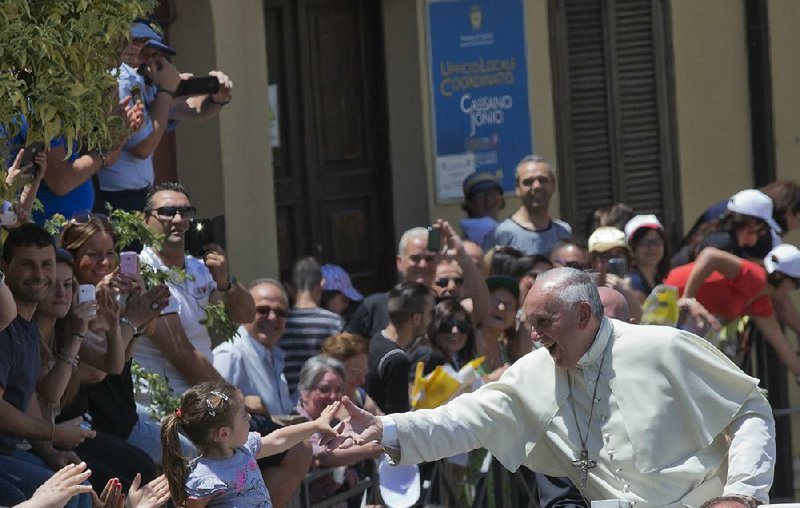WASHINGTON -- Are you sitting down? New research shows that when people are asked to rate their own faith group compared with others, they rate it more positively.
A survey out last week by the Pew Research Center asked respondents to identify their feelings about various faith groups on a "cool" to "hot," 1 to 100 feelings thermometer. A 50 was described as neutral, not having "particularly" positive or negative feelings.
Every group, from atheists and Catholics to black Protestants and white evangelicals, felt most warmly about people like them. For example, Catholics get an 80 thermometer reading from other Catholics, compared with a 58 among non-Catholics, and evangelicals get a 79 from people who call themselves born-again or evangelical, compared with a 52 from nonevangelicals.
Rating one another sounds like a harsh high school popularity game, but the survey does show the clear correlation between knowing someone of another faith and feeling more positively about them. For example, Jews get a 69 reading from people who know Jews, compared with a 55 from people who say they don't know anyone Jewish. Atheists receive a neutral score of 50 among people who know an atheist, compared with a cold 29 by people who say they don't know any atheists. People who know a Muslim give a neutral number (49) compared with a cooler one (35) from people who know none.
Scott Thumma, a sociology professor at the nondenominational Hartford Seminary in Connecticut, said such research is important to track social change. Hartford, which focuses on interfaith education, has run a research project called Faith Communities Today, which in 2000 found that only 7 percent of U.S. congregations reported worshipping with congregations from another faith. By 2010, that percentage had doubled. And the percentage of congregations doing interfaith community service jumped from 8 percent to 20 percent in that period.
"There's great value in asking because you know if there is tension, or conversation in the nation, then obviously cultural change is happening," Thumma said. "Even if it still shows the nation has a long way to go."
Thumma said deeper research shows that Americans speak and think differently about other faith groups when asked in the abstract than they do when they are asked about specific interactions with people they know.
The Pew survey shows that many factors are associated with varying views about faith groups, including someone's age, level of education and political affiliation.
Older Americans give higher ratings than younger Americans to Christians and Jews, while younger Americans give higher ratings than older ones to other non-Christian groups. For example the rating given evangelicals climbs from 58 percent to 67 percent between Americans 18 to 29 compared with those older than 65. A similar pattern is there with Jews and Catholics. Younger people give Buddhists a 58, but the number drops to 47 by the oldest group.
Pew researchers said the differences could have to do with the disparity in stated religious affiliation between the young and old: 85 percent of people 65 and older describe themselves as Christian, compared with 59 percent of younger Americans.
Party affiliation is also connected with feelings on faith groups. Republicans give the highest positive feelings toward evangelicals (a 71 reading), although the data shows that this is affected by the large percentage of evangelical Republicans. Among nonevangelical Republicans, the figure drops to 62 percent. Democrats give the highest readings to Jews (average rating of 62), Catholics (61) and Buddhists (57).
Greg Smith of Pew said the organization has done multiple polls trying to get at the intersection between feelings about religion and about other things, such as how much people perceive themselves as having theological beliefs in common with others and people's ideas on religion and violence.
"In a society like the United States, where religion is such an important part of life, of how people view the world, how people approach politics -- it's one of the things that drives some of the very serious cultural disagreements we see in American society. It's important to know how religious groups see one another, relate to one another," Smith said.
Religion on 07/26/2014
